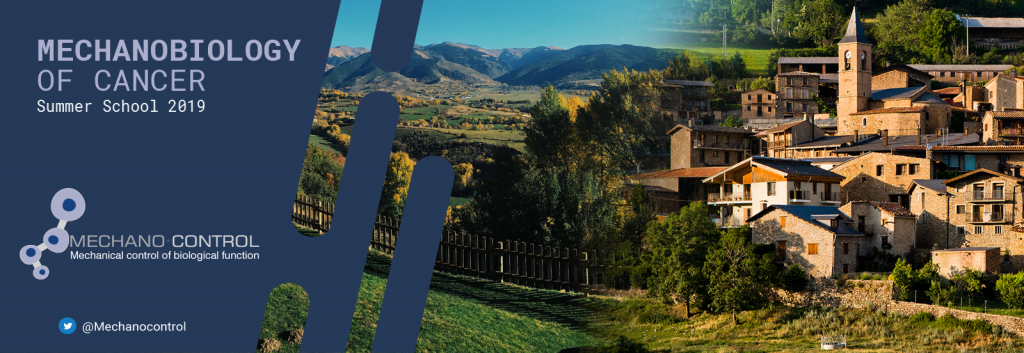
The MECHANO·CONTROL consortuium is launching the website for the “Mechanobiology of Cancer Summer School 2019” for the application process and registration.
The application period opens today until the 8th May 2019, where you can submint an abstract if you are interested in giving a short talk during the summer school.
The application does not guarantee acceptance to the Summer School due to the limited number of participants, an email with the resolution of the applicaton process will be sent on June 15th 2019.
The summer school will be held in La Cerdanya at the Eco-Resort located in Prullans in the Catalan Pyrenees.
The participation fee is 300€ (taxes not included) and includes accomodation in shared double room (from 17th-20th September 2019), full-board, workshops and conferences, leisure activities and shuttle bus from Barcelona to the venue.





